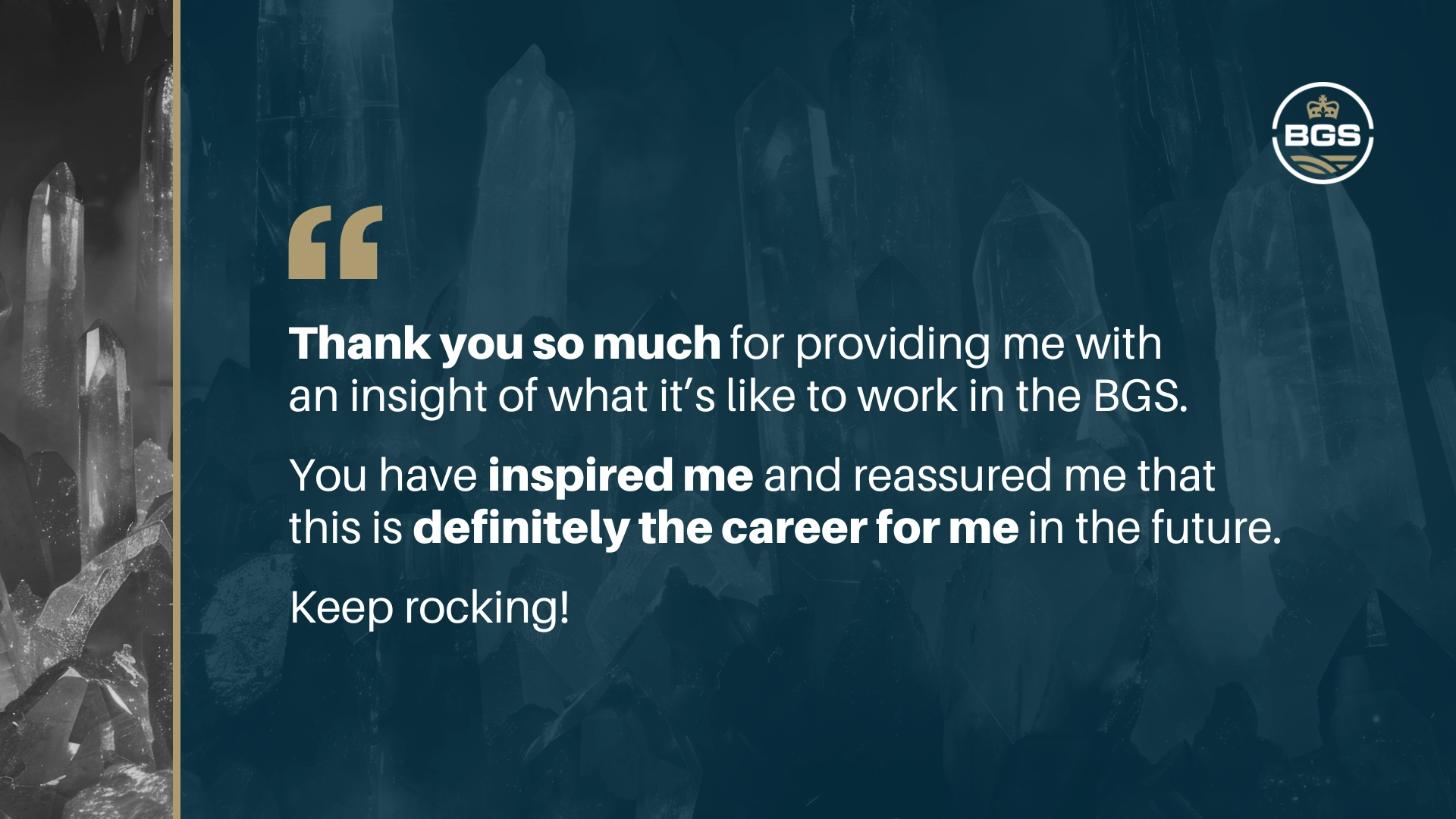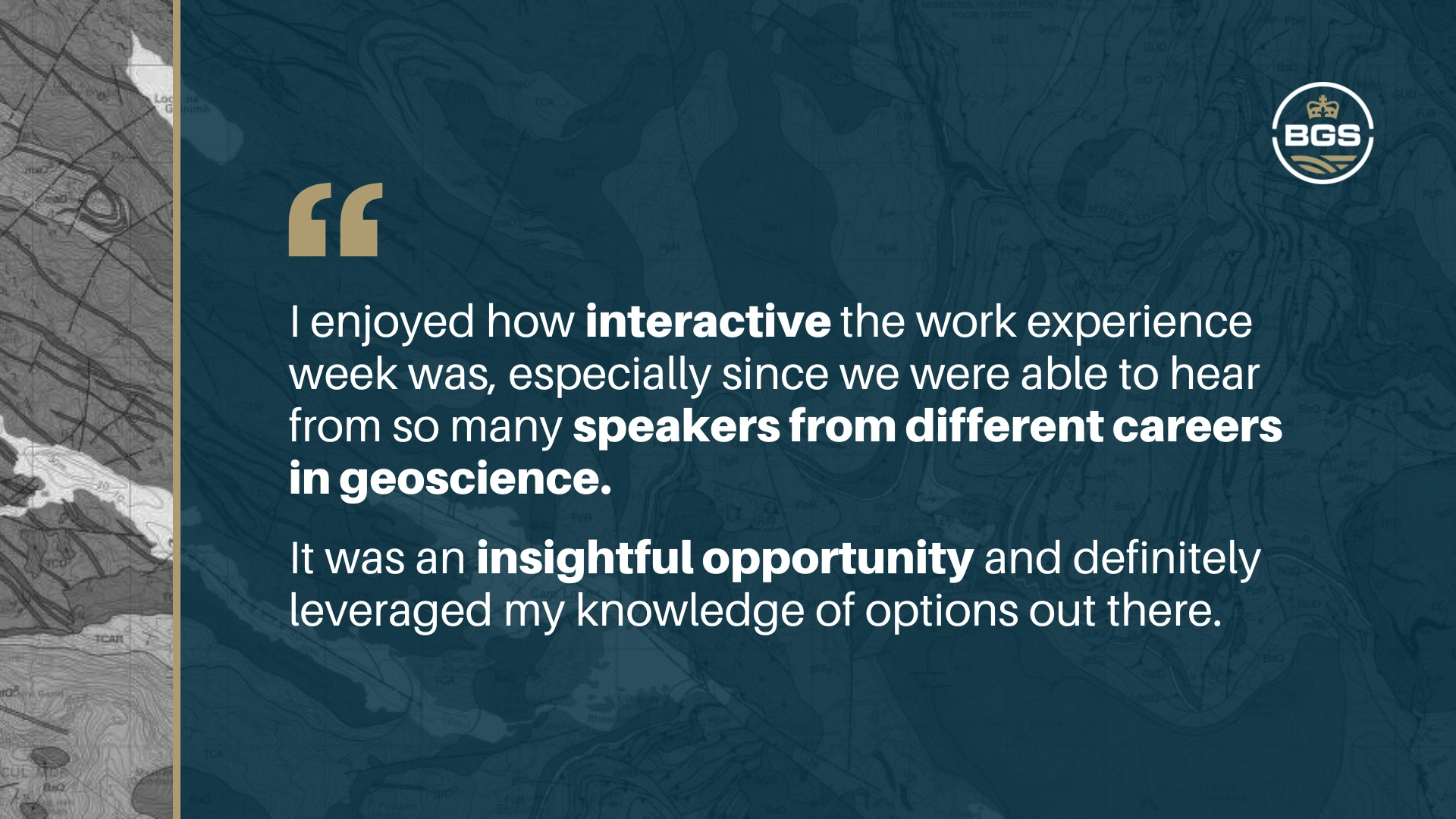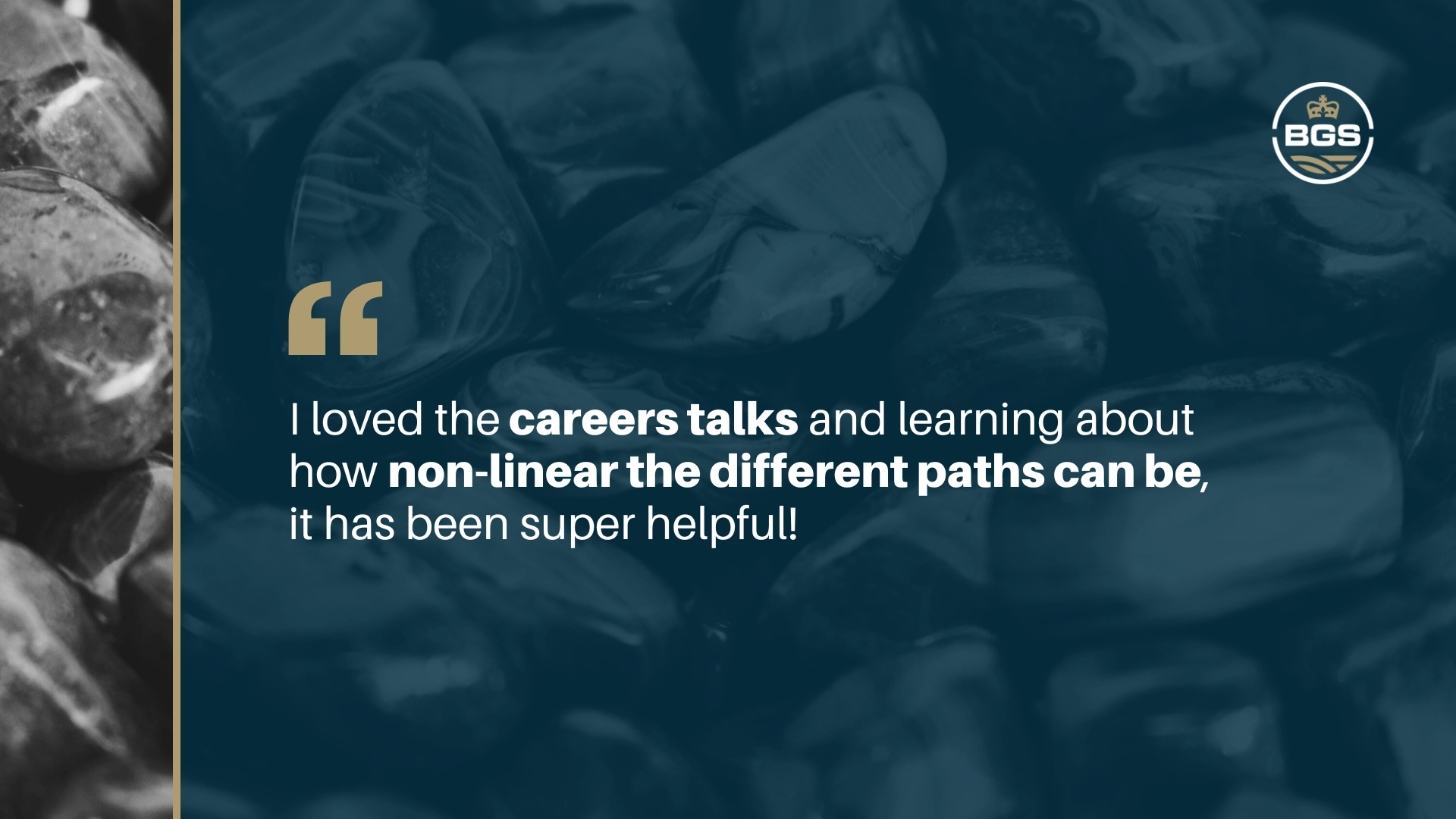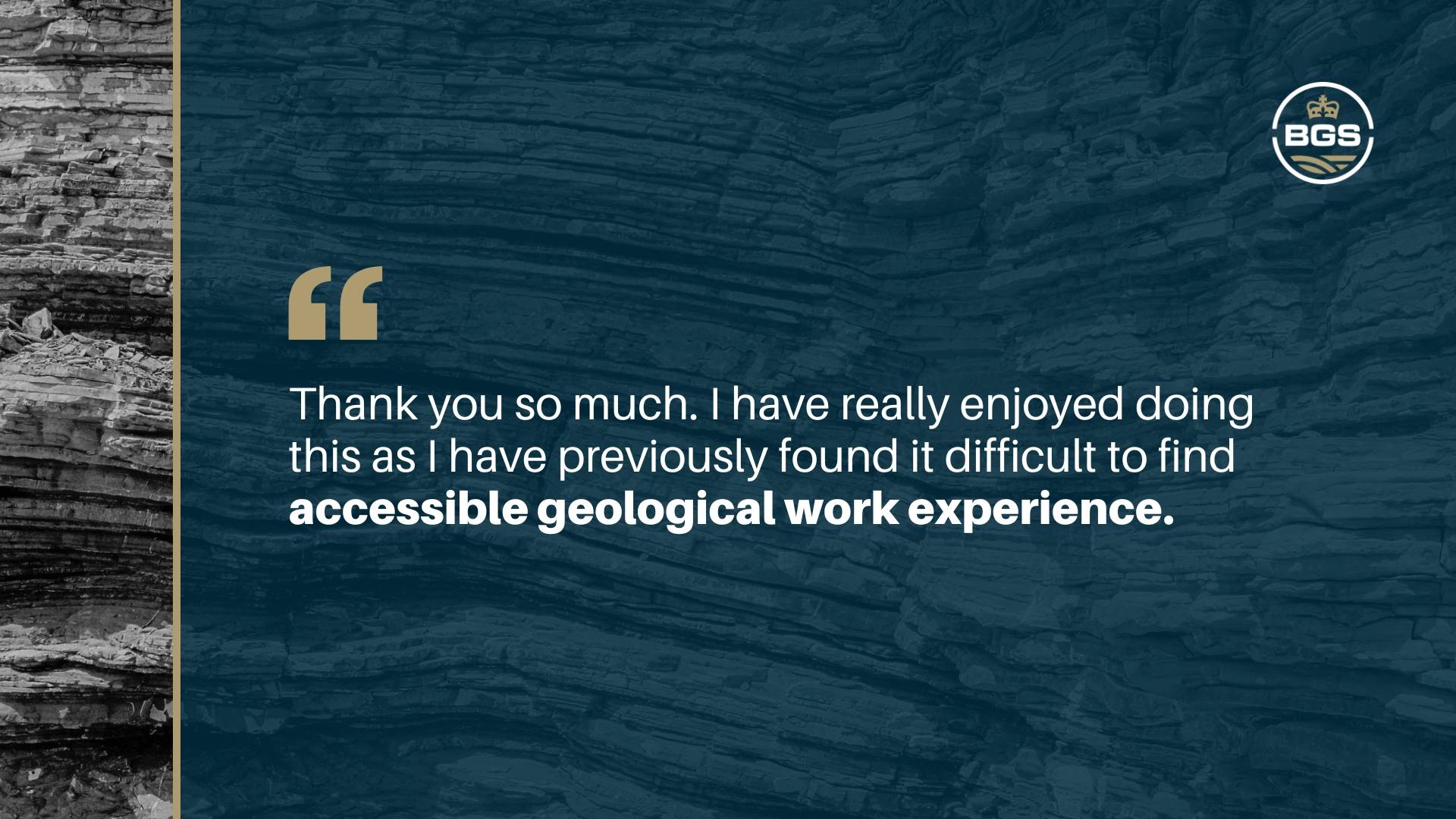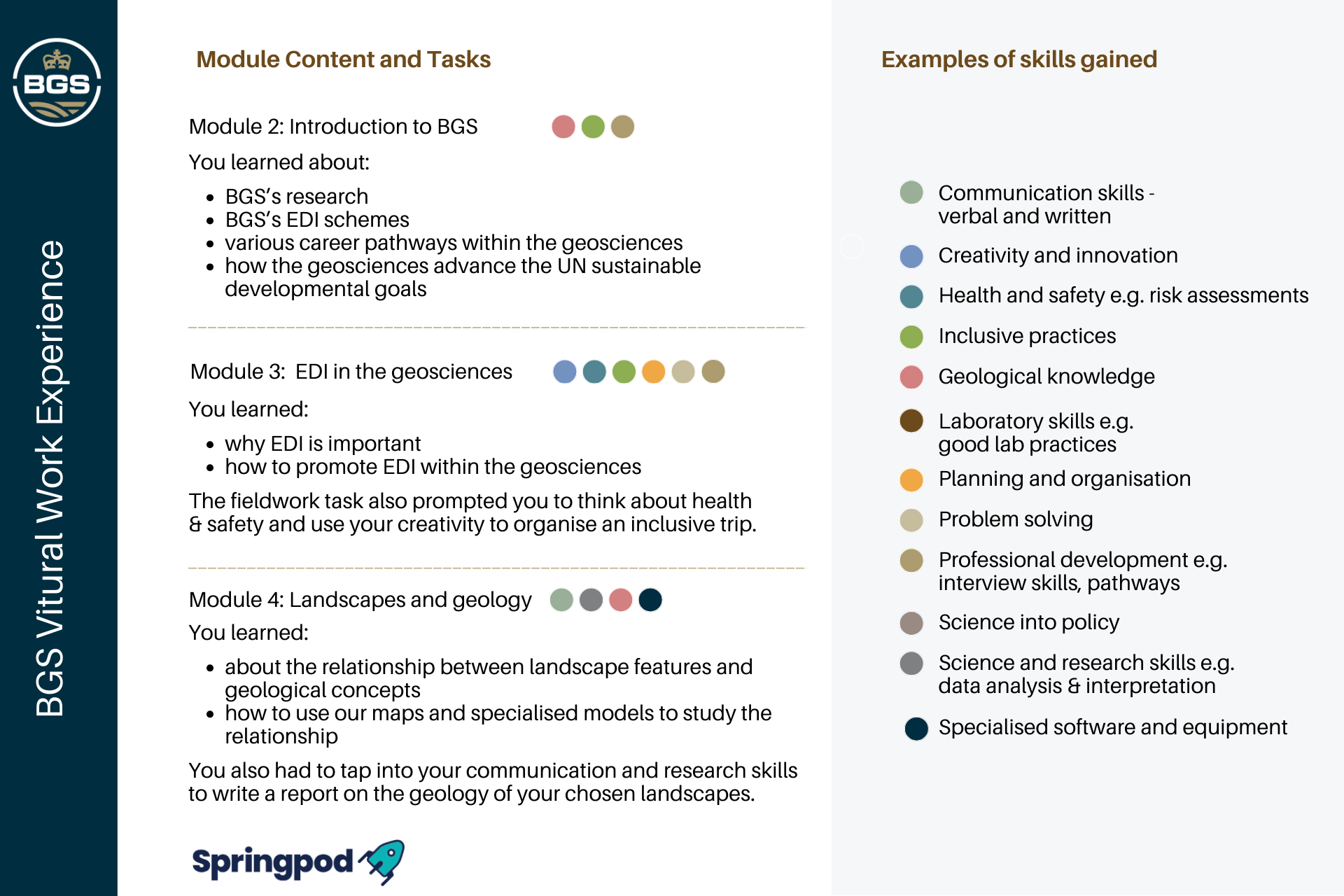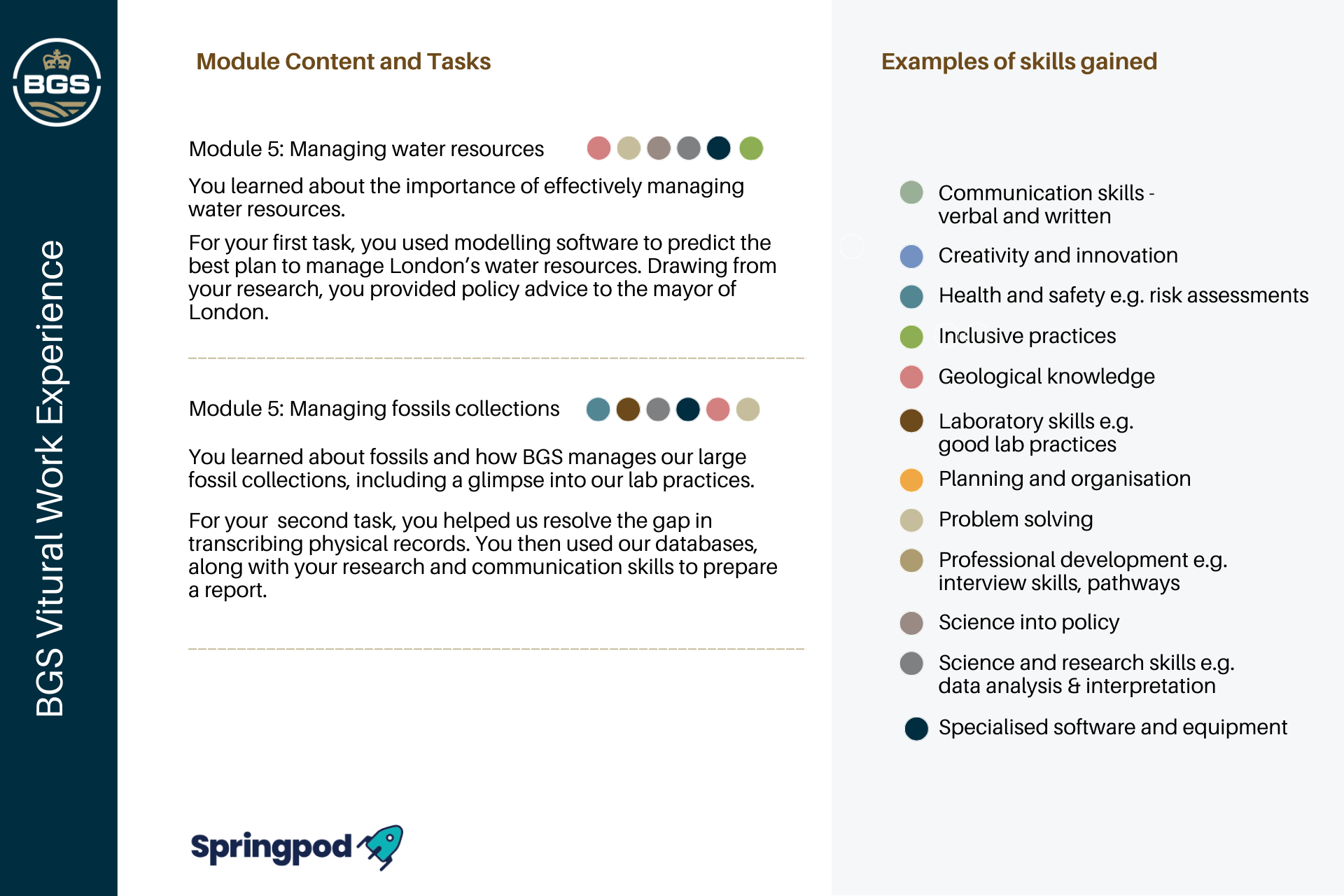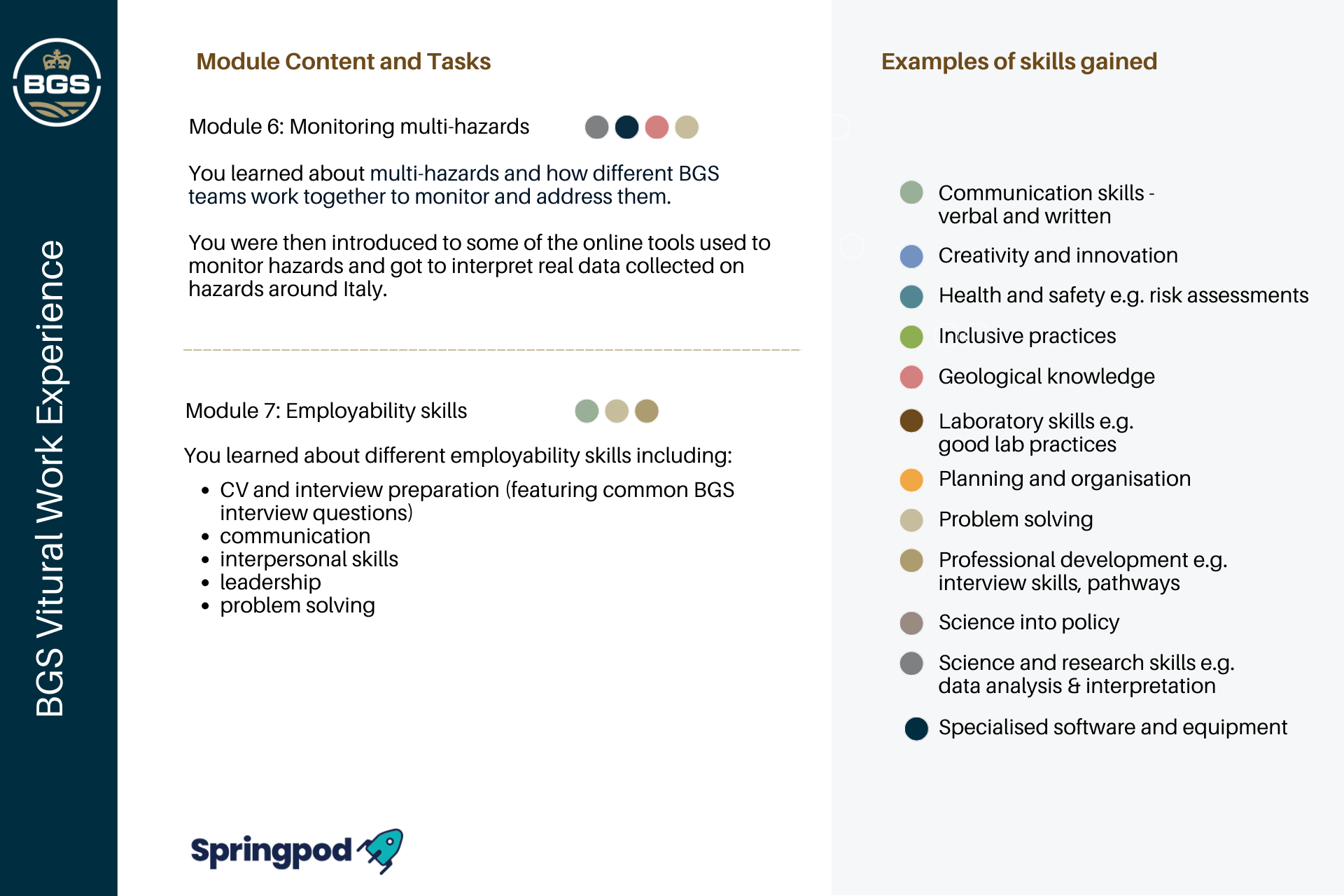Opening up the geosciences: making work experience more accessible
BGS has been working with partners to make the geosciences more accessible to young people, including those from under-represented backgrounds.
19/09/2025 By BGS Press
Despite a steady rise in the number of young people pursuing educational routes into to geography, earth and environmental sciences (GEES), the under-representation of students from lower socio-economic and some marginalised ethnic backgrounds continues to be a significant issue. Aligned with BGS’s strategic goal of fostering a sustainable and diverse future workforce within the geological sciences, BGS’s equality, diversity and inclusion (EDI) team has been actively working on several engagement initiatives to help address this.
The Royal Geographical Society has analysed the participation and progression trends of students studying geography from GCSE through to undergraduate entry. Their research showed that, between the academic years of 2009 to 20210 and 2017 to 2018, GCSE geography entries were lower among disadvantaged students who were eligible for or had received free school meals at any point, with an 11.1 per cent gap recorded in 2018. In addition, when the data was disaggregated by ethnicity, Black students had disproportionally lower entry and attainment levels in comparison to other groups. These trends persisted through A-levels and undergraduate admissions, reflecting wider concerns about diversity in GEES education and related professions, as highlighted by national statistics and comparative studies.
The relevance of this research is underscored by a 2024 report by the Key Group, which revealed UK-wide challenges in meeting the Labour Government’s pledge to guarantee two weeks’ worth of work experience for every young person. Between 2018 and 2019, and 2023 and 2024, fewer than 50 per cent of Year 10 students participated in any work experience and under 2 per cent of those met the government’s target. This presents a key issue not just for young people but also for employers, as the right work experience interventions are a significant contributor in addressing skill shortages, which are estimated to be costing the UK economy approximately £20 billion a year.
Our initiatives are underpinned by research on the role of work experience in enhancing employability and career awareness, as well as research on the barriers that prevent marginalised students from accessing these opportunities. They challenge negative perceptions of GEES careers and broaden our reach through strategic partnerships that may help mitigate the geographical and financial factors limiting students’ access to BGS.
So far, we have targeted under-represented people aged 15 to 18 with initiatives that aim to:
- support the academic and career development of students across various stages
- diversify the representation of the next generation
- address negative perceptions surrounding the geoscience field, such as views that it is exclusive, uninteresting or offers limited job opportunities
- raise BGS’s profile within the job market, helping to attract future talent
- create avenues for BGS to gather insights from enthusiastic students who bring innovative ideas and diverse viewpoints
- deliver a range of career and academic development activities, with the objective of equipping participants with the confidence and skills necessary to succeed or become more resilient in their future academic and professional pursuits
Work experience feedback
Creative Tuition work experience
In October 2024, BGS and the British Antarctic Survey (BAS) launched a collaborative virtual work experience programme, in partnership with student development experts Creative Tuition Ltd and Zebera Design and Innovation. Approximately 20 to 25 per cent of participants were either eligible for free school meals or lived within areas with the lowest rates of progression to higher education. Additionally, 69 per cent identified as female and 39 per cent were from minoritised ethnic backgrounds.
As well as broadening their career perspectives, students were actively engaged in design thinking challenges that focused on addressing our real-time priority areas. This hands-on experience not only strengthened their problem solving and critical thinking skills, but also provided our institutions with valuable insights on how to resolve our ongoing challenges.
BGS tasked students with finding exciting ways to communicate the various roles and importance of geoscientific staff to younger audiences (aged up to eight years). This task, titled ‘Geology heroes’, saw students like Renee, Ruby, Sharvari and Smaragda develop creative comic book characters and storyboards, and offer suggestions on how to disseminate the content. Similarly, BAS challenged the students to design underwater gliders capable of tracking algal blooms in Antarctic coastal sea water, with a focus on energy sources and harsh, icy conditions. The students proposed several design strategies, including the use of sonar technology to help the gliders detect icebergs and monitor changes in sea-water composition and temperature.
The measurable impact of the programme was shown by the positive feedback from students, with 94 per cent either agreeing or strongly agreeing that the work experience was beneficial and that they felt supported throughout the process. Over 80 per cent of the students reported improvements in their communication, presentation, research and collaboration skills. Feedback also showed an improvement in workplace confidence. Notably, in the months following the programme, one student from a marginalised background credited the work experience with helping them secure a nuclear engineering apprenticeship.
Springpod virtual work experience
Alongside this work experience, BGS also created another online work experience platform, running from September 2024 until April 2025. Partnering with work-based learning platform Springpod, we offered this virtual work experience for students aged between 13 and 18. As we were able to offer a programme that allowed students to learn at their own pace over a course of months, we could offer more flexibility than traditional work experience roles.
The course covered five topics:
- EDI in the geosciences
- landscapes and geology
- managing water resources and fossil collections
- monitoring multi-hazards
- employability skills
We used a multimedia platform to deliver information including video content, interactive slideshows and text and offered example tasks that replicated the day-to-day responsibilities of BGS team members, giving participants a glimpse of what different geoscience careers could involve. We also offered a ‘mock interview’ to help students improve their confidence at interview stage.
Almost 900 students enrolled in the course and we noted positive strides in the demographic of the participants completing the programme:
- 48 per cent of participants were female
- 34 per cent were from a marginalised ethnic background
- 21 per cent of students indicated that they would be first-generation university attendees
- 24 per cent mentioned they were either in care or have been eligible for school meals
- 11 per cent shared that they have special education needs
Data analyses on the programme also showed that over half of the participants reached bronze, silver or gold status of engagement and programme completion. Additionally, the average satisfaction rating was 8.1/10, with students complementing the real-life tasks that let them apply their acquired knowledge. Encouragingly, students who completed the programme reported increased awareness (97 per cent) of careers in the geoscience industry as well as increased confidence (85 per cent) to pursue these careers.
Future opportunities
While the work experience we’ve provided so far has strongly demonstrated the ability to positively influence the career trajectories of students, longer-term investment is required to enable continued impact and ensure that opportunities for under-represented students are not intermittent. To this end, the Springpod virtual learning course has been renewed for another year and will be available until April 2026. A second iteration of the cross-centre virtual work experience programme will also be run during the October 2025 half-term week. For updates on the programme, please visit the BGS work experience web page and keep an eye on social media.
About the author
Maria Kariuki is BGS’s EDI officer.



